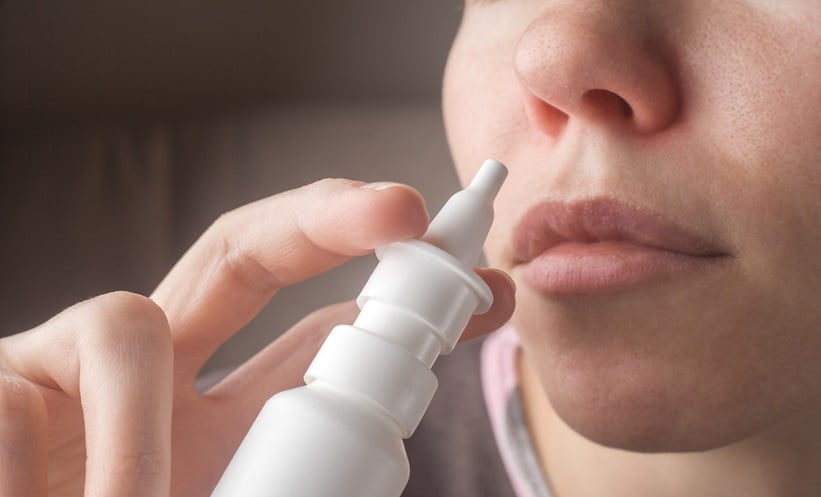INTRANASAL oxytocin administered every third day is well tolerated and leads to a modest reduction in apathy among individuals with frontotemporal dementia, new research has shown.
Apathy is a significant and debilitating symptom of frontotemporal dementia, for which no approved treatments currently exist. Previous research suggested that intranasal oxytocin may improve apathy ratings in the short term, prompting this multicentre, randomised, double-blind, placebo-controlled, adaptive, crossover, phase 2a/2b trial. Conducted across 11 expert dementia clinics in Canada and the USA, the study aimed to evaluate the effects of longer-term oxytocin administration on apathy symptoms. Participants aged 30–80 years with probable frontotemporal dementia and an apathy score of at least 2 on the Neuropsychiatric Inventory were enrolled. In stage 1, participants were randomised to three different dosing schedules (every day, every other day, and every third day) of 72 IU oxytocin or placebo, with crossover after a six-week treatment period and a six-week washout. Stage 2 refined the optimal dosing schedule and further assessed efficacy and safety.
Between January 2018 and December 2020, 60 participants enrolled in stage 1, and 45 completed both treatment periods. Bayesian analysis determined that oxytocin administration every third day was the most promising regimen (Pr(Best)=0.478). In stage 2, conducted from June 2021 to January 2023, 34 participants enrolled, with 28 completing both treatment periods. The final analysis, based on 94 participants (40% female, mean age 65.9 years), demonstrated that oxytocin every third day improved apathy scores by an estimated –1.32 points (95% CI –2.43 to –0.21) relative to placebo (one-sided p=0.010). The treatment was well tolerated, with no adverse events directly attributed to oxytocin. The most common adverse events were upper respiratory tract infections (6% placebo, 5% oxytocin) and headaches (3% placebo, 4% oxytocin every third day).
These findings suggest that intranasal oxytocin, administered intermittently, has potential as a treatment for apathy in frontotemporal dementia. While the observed effects were modest, future studies could explore alternative dosing regimens or more potent formulations to enhance therapeutic outcomes. Given the substantial impact of apathy on quality of life and caregiver burden, continued research into oxytocin and other pharmacological strategies remains a priority for clinical practice.
Katrina Thornber, EMJ
Reference
Coleman KK et al. Intranasal oxytocin for apathy in people with frontotemporal dementia (FOXY): a multicentre, randomised, double-blind, placebo-controlled, adaptive, crossover, phase 2a/2b superiority trial. The Lancet Neurology. 2025;24(2):128-39.








